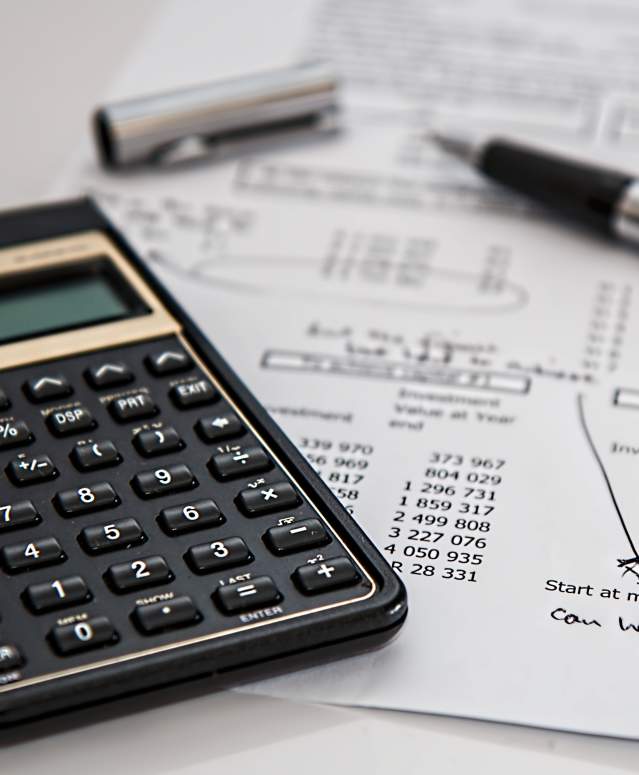Waste Management
Events can generate significant amounts of waste and recycling in a short period of time. Safely and responsibly managing this waste is an important consideration when planning your event.
By incorporating an effective waste management strategy into your event planning, you can maintain a clean and safe environment during and after an event, minimise hazards, promote sustainability, and ensure a positive experience for attendees and the surrounding community.
‘Reduce, Reuse, Recycle’ is key when planning your event’s waste management strategy.
- Reducing the amount of waste created should be your first port of call, because if we do that first, there will be less waste left over to dispose of – there are many alternatives available to single-use items and packaging.
- Reusing is about using items for a second, third, or more times, or another purpose altogether. Event assets like signage and barriers can be reused many times if planned and made appropriately – considering the entire life span of an item can help to make better choices both environmentally and financially.
- Recycling is when we convert waste into a new object or material. Recyclable and compostable options for many event-related commodities are readily available.
Tips:
Types of Waste
Waste can be broken down into specific categories, with each requiring different methods of handling to ensure that it is dealt with in an appropriate, responsible and safe manner. Physically separating waste into categories early in the handling process makes it much easier to achieve this. Types of waste that may be created by an event include:
- General Waste: This includes non-recyclable and non-compostable materials, such as packaging, plastic bags, wrappers, and non-recyclable paper. This is generally disposed of in landfills, therefore plan to reduce this where possible.
- Recyclable Waste: This comprises materials that can be recycled, such as paper, cardboard, glass bottles, aluminium cans, plastic bottles, and containers. Proper separation and collection of recyclable waste is essential.
- Organic Waste: This consists of food waste, kitchen scraps, biodegradable food packaging and other biodegradable materials. Organic waste can be composted to produce nutrient-rich compost for gardening or agricultural purposes.
- Hazardous Waste: Events may generate hazardous waste, including batteries, fluorescent bulbs, electronic waste (e-waste), chemicals, and cleaning products. These materials require special handling and disposal to prevent environmental and health risks.
- Construction and Demolition Waste: If the event involves construction or temporary structures, waste generated from building materials, such as wood, metals, concrete, and other debris, needs to be properly managed and disposed of.
- Liquid Waste: This includes wastewater, spilled liquids, and other liquid by-products that require appropriate containment, treatment, or disposal methods to prevent environmental contamination.
- Plastic Waste: Single-use plastic items such as cutlery, straws, cups, and packaging, are a significant concern due to their environmental impact. Implement strategies to reduce the use of single-use plastics and promote alternatives.
- Paper Waste: This includes printed materials, tickets, flyers, and brochures. Consider utilising digital alternatives or using recycled and sustainably sourced paper to minimise paper waste.
- Human Waste: Providing an adequate number of toilets for your event’s attendees and ensuring responsible treatment/disposal of their human waste is an essential consideration.
Waste Assessment
- Conduct a waste assessment to determine the types and quantities of waste typically generated at similar events.
- A waste assessment will help in designing appropriate waste management strategies and infrastructure.
Waste Minimisation Planning
- Develop a waste minimisation plan by setting specific goals and targets for waste minimisation.
- Check out your local council’s waste minimisation plan for events. Alternatively, councils all over New Zealand have templates you can use to format your plan – see Auckland’s example here: Waste Management and Minimisation Plan for Events (aucklandcouncil.govt.nz)
- Work with your local council or waste management authority to ascertain what types of waste are the hardest to deal with and focus on reducing these first.
- Encourage vendors, contractors, venue management and event participants to adopt sustainable practices, such as reducing the use of single-use items and promoting recycling.
- Conduct a waste audit to show where you can improve your waste reduction plan in future.
- Promote waste reduction and responsible waste management practices through signage, announcements, and digital media platforms.
- Minimise printed materials, and where applicable (e.g. conferences) encourage attendees to bring their own pens and paper.
Waste Collection and Sorting
- Plan for efficient waste collection and sorting during the event – provide separate receptacles for each type of waste where possible.
- Ensure waste collection points are strategically placed, clearly marked, and well-maintained.
- Provide clear instructions on waste separation, recycling, and composting to educate event attendees about the importance of their actions.
- Train event staff and volunteers to sort waste safely and correctly where necessary.
Recycling Infrastructure
- Ensure sufficient recycling collection infrastructure is available throughout the event venue.
- Work with waste management providers or local authorities to arrange for specific recycling services and educate attendees on proper recycling practices.
- Prioritise the use of recyclable options over single-use options wherever possible.
Composting and Organic Waste
- Consider implementing composting systems for organic waste generated at the event, especially when food is being served.
- Local councils may have composting facilities available as a part of their waste management systems.
- Some farmers will also gladly accept food waste as feed for their pigs.
Waste Management Partnerships
- Collaborate with waste management companies, local authorities, and community organisations to facilitate proper waste management.
- Establish partnerships to coordinate waste collection, recycling, and composting efforts.
Waste Auditing
- Consider conducting post-event waste audits to evaluate the success of waste management strategies, identify areas for improvement, and measure progress towards waste reduction goals.
- This data can help inform future event planning and contribute to a more sustainable approach.
Managing Human Waste
- When planning the provision of toilet facilities, the following should be taken into consideration:
- Type of event
- Duration of the event
- Crowd type and activities
- Number of patrons
- Alcohol and food consumption
- If your event venue does not have adequate toilet facilities, you will need to hire portaloos to cater to your attendees’ needs. A rough guide for how many to order (assuming daily pump outs) is one toilet per 25-30 attendees.
- If your event has alcohol at it, you may need more toilets as people will use the facilities more often when consuming alcohol.
- Portaloo hire companies will generally have a suggested pumping contractor and you will need to get the portaloos pumped out before returning them. Some hire companies streamline this process by charging a 'service fee' on top of hireage.
Useful Links:
Waste Management and Minimisation Plan for Events (aucklandcouncil.govt.nz)
Reducing your waste - Reducing waste at your events - Wellington City Council
Zero Waste Events - Help Auckland to be Zero Waste
Closed Loop Environmental Solutions New Zealand | Circular Economy Experts
Event Waste Management Guide (Hamilton City Council)
Reclaim | Serious About Recycling (reclaim.co.nz/recycle-co-nz)
Have you considered?
- How do you intend to reduce single-use items and packaging from your event?
- What systems does your venue have in place for waste minimisation?
- Do you know what types of waste can be recycled by your local council
- What are the main waste types that will be produced by your event? Complete a waste assessment to determine the types and quantities of waste typically generated at similar events.

